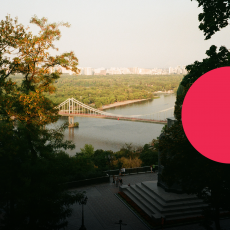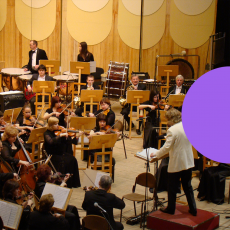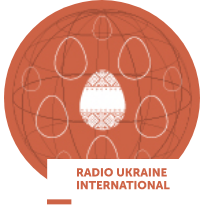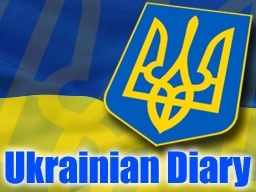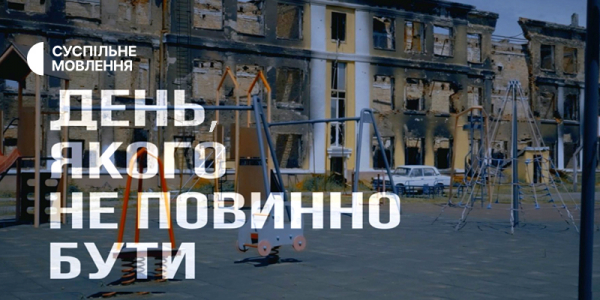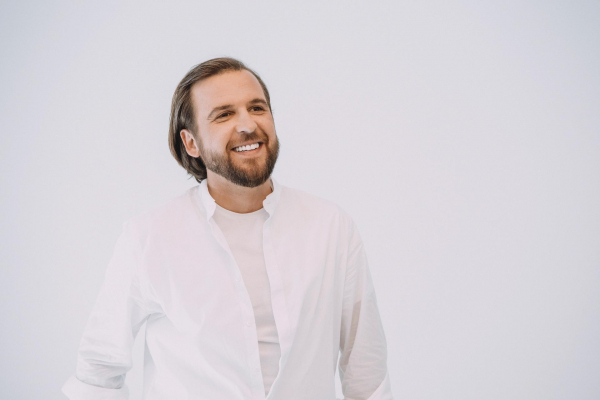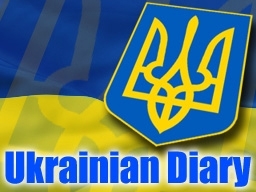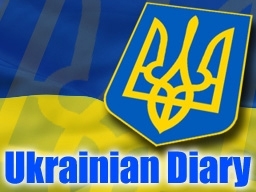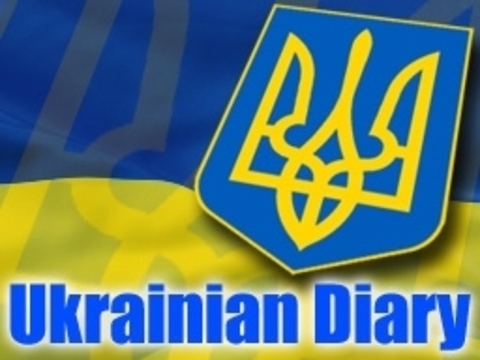Ukraine’s Security Service arrested Nadia Savchenko on charges of plotting terrorist attacks in Kyiv
Nadiia Savchenko, People's Deputy of the Verkhovna Rada, was arrested in the parliament on Thursday. This happened after the session, during which the deputies voted to waive the immunity, prosecute and arrest the non-factional MP Nadiia Savchenko. The Verkhovna Rada Regulatory Committee recommended the MPs to approve the respective decision after the charges are brought against Savchenko by the Prosecutor General's Office of Ukraine. Savchenko is accused of interactions with the militant leaders, of a conspiracy with the head of the Center for the Release of Captives, NGO "Officers' Corps" Volodymyr Ruban, who is already under arrest, and of preparing a terrorist attack in the Verkhovna Rada. Yuriy Lutsenko, General Prosecutor of Ukraine, said the following: “In 2017, as established by the investigation, citizen Ruban, as well as People's Deputy Savchenko, have been plotting to forcibly overthrow the constitutional system and seize state power in Ukraine. To this end, they planned a large-scale terrorist attack in the center of the Ukrainian capital, where administrative buildings are located. In order to obtain weapons, Ruban and Savchenko, not later than November 2017, reached an agreement with the leader of the terrorist organization of the so-called "Donetsk People’s Republic" Zakharchenko, who had later handed over the weapons for this terrorist act.” Lutsenko also demonstrated video evidence proving that Savchenko and Ruban participated in organizing the transportation of weapons from the occupied territories of the Donbas, and also discussed the plans for the take-over. The Standing Committee found the claim of the Prosecutor General's Office to be lawful and sufficiently substantiated. People's Deputy Nadiia Savchenko admitted that she bought weapons and contacted with the militants, arguing that she wanted to stop the war at any cost, including contacts with the enemy. According to her, she took weapons from the occupied territories, so that it did not shoot at the Ukrainian military and because she had seen allies and like-minded people in the occupied territories.
Nadiia Savchenko is a professional military pilot who traveled to the Donbas as a volunteer in the spring of 2014. There she was captured and spent almost two years in a Russian prison. During her stay in Russia, she became a people's deputy of Ukraine, when "Batkivshchyna" party had appointed her to be the first number in its election list in autumn 2014. She returned to Ukraine in May 2016, and the president awarded her the title of the Hero of Ukraine. Subsequently because of her scandalous statements about the Donbas, "Batkivshchyna" faction had excluded Nadiia Savchenko. Before the parliament’s vote, representative of “Batkivshchyna” faction Serhiy Soboliev has stated, in support of the prosecutor, that "this was one of the best operations of the Ukrainian special services."
Situation in the Donbas conflict zone: weekly roundup
The situation in the conflict zone in the Donbas region has improved over the past week, yet it remains unstable with sporadic fire outbursts from the enemy’s side.
Thus on Monday 2 instances of enemy strikes with the use of small arms and grenade launchers have been recorded near the industrial town of Avdiivka in Donetsk region.
The biggest number of enemy strikes over the past week was recorded on Wednesday, when anti-tank weapons and grenade launchers were used near Avdiivka, as heavy machineguns near the village of Pisky, mortars and anti-aircraft guns near Troyitske. 2 Ukrainian soldiers were wounded in action as a result. On Friday though, the Defense Ministry’s press service reported that the truce had been fully observed for the 2nd day in a row. The operation headquarters press officer Oleh Sushynsky reported: “Over the past day the truce has been fully observed by the Russian-occupation forces. The Ukrainian army has recorded no enemy strikes. The Ukrainian servicemen continue to strictly observe the ceasefire announced on March 5th, securing the situation on the engagement line.”
Ukraine’s Foreign Ministry Demanded from Russia to provide access by Ukrainian doctors to political prisoner Oleh Sentsov
The Ministry of Foreign Affairs of Ukraine has sent a note over the deterioration of Oleh Sentsov’s health to the Russian Foreign Ministry, demanding from Russia to urgently allow Ukrainian consul and doctors to visit the illegally imprisoned Ukrainian citizen. This followed a letter that Sentsov had written to his sister Nataliya Kaplan about his teeth crumbling and hair loss, and the irreversible changes in his health, while he is serving his prison sentence in the vicinity of the arctic circle. Mariana Betsa, spokeswoman of the Ukrainian Foreign Ministry, said in a statement that: “For almost four years of his illegal imprisonment, not once have Ukrainian doctors or the Ukrainian consul in Russia been allowed to examine Oleh Sentsov. Our only sources of information are human rights defenders and his lawyer.” However, his actual condition remains unknown, Mariana Betsa stressed, as nobody on behalf of the Ukrainian side was allowed to visit him. Ukrainian filmmaker Oleg Sentsov and Crimean activist Oleksandr Kolchenko were detained by the Russian FSB in the annexed Crimea. Both were illegally taken to Russia and have undergone trials in cases that were internationally recognized as fabricated. Sentsov was charged of preparing a terrorist attack in Crimea, and sentenced to 20 years in a high-security penal colony. Alexander Kolchenko was sentenced to a ten-year-long imprisonment.
International Human Rights Documentary Film Festival Docudays UA kicked off in Kyiv
In Kyiv, the whole human rights advocacy community, as well as filmmakers, are gathering once more att the 15th IHRDFF Docudays UA that has kicked off on Friday with 62 films from 36 countries, among those 11 films by Ukrainian directors. The theme of this year’s festival is titled as Equal Equalities. Addressing social challenges and widespread stereotypes around the concept of equality, it also focuses on the ways to measure equality, and explores equality practices in the everyday life.
Daria Averchenko PR-manager of the festival, commented: “The theme of equality is actually very urgent, one may not have thought about it really. But this year we decided to figure out whether this is an abstract concept or one of the basic values that our society is built on. And so, our non-competition programme includes 6 topics that would touch human rights violations against people with disabilities, violations based on nationhood or religion, violations against LGBT people. Also we will talk about women’s rights, and about the notion of ageism. You know, there is discrimination not only against the elderly, but also against the youth. For instance, when they are often not hired because they lack experience, but they may have to earn money to pay for their studies, or help their family. So we want to talk about how to practice equality in our life.” This year’s festival is not only for watching films, looks like it is also a platform for human rights advocacy campaigns. Among those, is a campaign promoting legal literacy, presented by the Ministry of Justice and titled I Have the Right; No Violence Campaign with talks on gender equality, bullying and domestic violence; and a Campaign Against Discrimination.
In 2017, the festival was dedicated to the topic of global warming and the destruction of nature. While this year, it’s all about humans, the way they live together and treat each other. One of the focus themes is women’s rights. For the opening movie, the organizers have chosen A Woman Captured by Bernadett Tuza-Ritter from Hungary, which addresses the issue of modern slavery, and a woman’s journey back to freedom. At a press conference in Kyiv Anastasia Divinska, Head of UN Women office in Ukraine, announced the launch of the UN Women campaign in the framework of Docudays UA festival: “I am glad to announce that this year Docudays UA has joined the global UN Women campaign that is called HeforShe. This movement is neither masculine nor feminine, this is a movement of solidarity.”
First visit by the Foreign Minister of France Jean-Yves Le Drian
Ukraine’s Foreign Minister Pavlo Klimkin has met with his French counterpart Jean-Yves Le Drian on Friday. The ministers have discussed aspects of bilateral cooperation and the joint efforts in concerning conflict settlement in Eastern Ukraine and deoccupation of the Donbas and Crimea, including the Normandy format. Within his 2-day official visit, Le Drian had a number of meetings with Ukrainian officials in his schedule. The meeting with President Poroshenko has allowed Le Drian to express EU’s expectations regarding reforms and the fight against corruption, particularly concerning the establishment of a specialized anticorruption court in Ukraine. The meeting Prime Minister Groysman was destined to review the economic and commercial exchange between the two countries and to reiterate the expectations of French businesses with regard to reforms.
Together with Pavlo Klimkin, J.-Y. Le Drian has assisted in the meeting with the released hostages and family of those who’ve been detained by the Russian regime, and those who’ve been gone missing. Among them, the wife of Ukrainian journalist Roman Sushchenko, sister of film director Oleh Sentsov, the leaders of Crimean tatar Mejlis Ilmi Umerov and Ahtem Chiygoz. The meeting was very emotional, according to Foreign Ministry’s Spokeswoman Mariana Betsa’s tweet.
Following the meeting, Klimkin told the press in Kyiv about the determination to persist in the efforts of freeing the captives. He also added: "It's a pity that we could not go to Donbass today, but we agreed that we would do it together with the new German Foreign Minister and go there together all the three of us. In my opinion, it is important to not only understant the meaning of the Russian aggression, but to also feel it on the spot.” This was said at a joint press conference with Minister of Europe and Foreign Affairs of France Jean-Yves Le Drian in Kyiv on Friday.
Ukraine’s losses caused by illegal annexation of Crimea and the Donbas conflict were calculated by Ukrainian and American economists
The annexation of Crimea has cost Ukraine considerable economic losses. Ukrainian and American economists have calculated the price of the illegal annexation of the Crimean peninsula and the conflict in the Donbas sponsored by Russia. According to the deputy head of the presidential administration, Dmytro Shymkiv, the loss of Crimea cost Ukraine 3.6% of GDP, 1.5% of exports and 80% of oil deposits. At the same time, the losses in the Donbas cost Ukraine another 15% drop in GDP, 25% decrease in heavy industry production, 23% drop in commodity exports, etc.
American experts estimated the economic losses of Ukraine from Russia's aggression in Crimea and Donbas to be at least 100 billion dollars. These losses do not include humanitarian and political losses from the aggression. Such an assessment was provided by Atlantic Council analyst Anders Aslund in his report "The Price of Kremlin's Aggression in Ukraine". The biggest losses in Crimea, according to the expert, are oil and gas resources. Their deposits are estimated at 30-40 billion dollars, as Aslund said. The losses of the banking system are also relatively easy to estimate - Ukraine has lost 1.8 billion dollars of banking assets in Crimea and 4.4 billion in the Donbas. Ukrainian institutions are already seeking compensation for the lost assets. In particular, Ukraine’s oil and gas company Naftogaz demands 7 billion dollars for its assets in Crimea. The researcher noted the difference in the legal status of Crimea and the Donbas, which creates different legal possibilities for compensation. Many lawsuits have been filed at the International Arbitration in the Hague. They claim Russia's violation of a bilateral investment protection agreement. "At the very least, here is the legal basis which you can refer to," Aslund said. In the Donbas, for example, in Luhansk there is a full legal chaos, the legal situation with claims for compensation is more complicated, the researcher emphasized. “Occupied Donbas, particularly Luhansk, is a hellhole without any law and order, killings, bandits are taking apartments, they took out the whole banking system, only about half of the population have left. We don’t know really how many people live there, probably, 2,5 million, as it was almost twice as many to begin with. There is nobody who is responsible, nobody recognizes DPR or LPR. There is nobody to claim anything from,” - Anders Aslund said.
Based on the findings of Ukrainian and American researchers, the reporters presented recommendations to the Ukrainian government. According to them, the Ukrainian government should create a database of lost assets as soon as possible, as the participants of the report presentation emphasized. It is necessary to estimate their value realistically, to investigate all legal grounds for the return of losses from the Russian Federation, to use all legal tools in this area. "For individuals, the legal way is through the European Court of Human Rights. I think that eventually there will be some consolidated lawsuit. This possibility is somehow included in the new law on the reintegration of the Donbas," as Iryna Paliashvili, chairwoman of the Legal Committee of the American-Ukrainian Business Council, said. There was also an idea to create an international commission on compensation for losses caused by the Russians to all the victims - both in Ukraine and in other countries.
